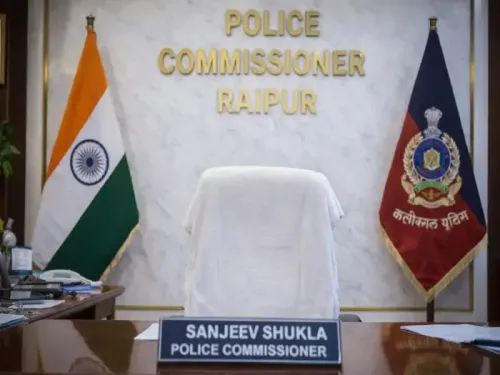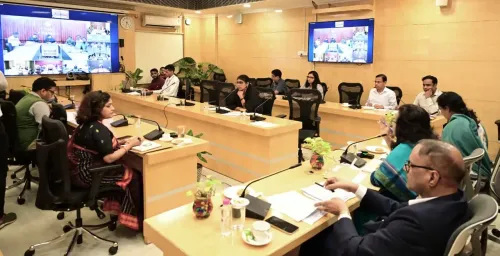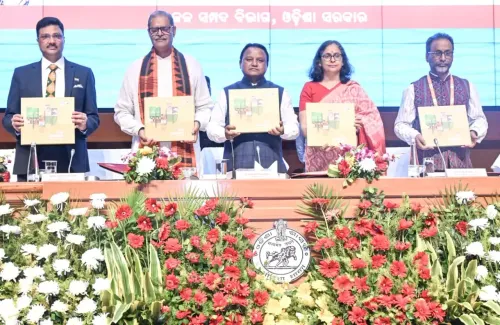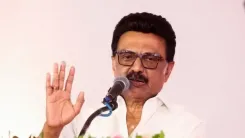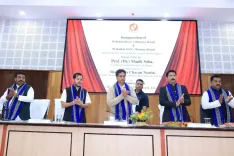How Did the Fourth Kautilya Economic Conclave Conclude Successfully?
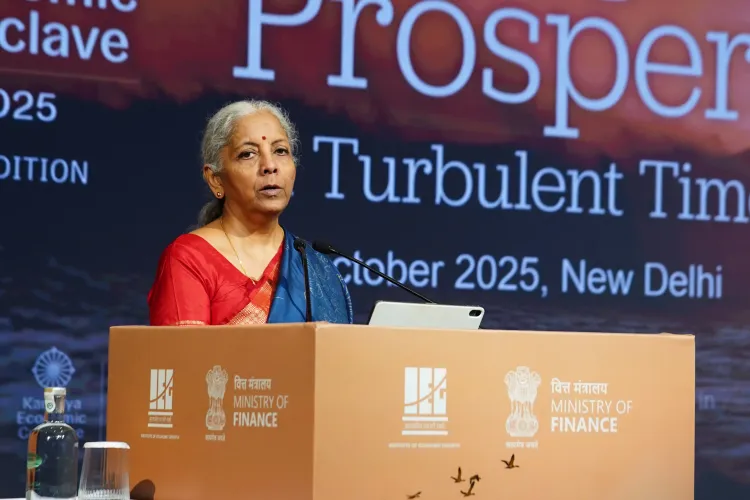
Synopsis
Key Takeaways
- India's economic growth is deeply rooted in domestic factors.
- Stable inflation management and exchange rate discipline are crucial for resilience.
- Digital infrastructure can foster inclusive systems and international cooperation.
- Trade challenges require strategic responses to protectionist trends.
- Ongoing structural reforms are essential for long-term growth.
New Delhi, Oct 6 (NationPress) The fourth edition of the Kautilya Economic Conclave (KEC 2025) has successfully wrapped up, hosted by the Institute of Economic Growth (IEG) in collaboration with the Ministry of Finance, as announced on Monday.
The event was inaugurated by Union Finance Minister Nirmala Sitharaman on October 3.
This three-day summit convened senior policymakers, economists, industry leaders, and academics to explore pathways towards resilient and inclusive growth amidst increasing global uncertainty.
In her speech, the Union Finance Minister asserted that India's emergence as a stabilizing force during these turbulent times is neither coincidental nor fleeting; it is a result of a potent mix of factors.
Sitharaman underscored the government's sustained efforts over the past decade in terms of fiscal consolidation, enhancing the quality of capital expenditure, and managing inflationary pressures. She noted that with a consistent share of consumption and investment in overall GDP, India's growth is solidly grounded in domestic factors, thus reducing the influence of external shocks on growth.
Throughout the event, participants engaged in rigorous discussions during plenary sessions, interactive panels, and specialized lectures.
Sessions focusing on macroeconomic resilience highlighted the significance of maintaining stable inflation, discipline in exchange rates, and protecting financial stability from global fluctuations in oil and commodity prices.
The discourse on digital public infrastructure showcased India’s leadership in developing inclusive systems, with topics like artificial intelligence, 5G communications, and digital finance opening doors to new avenues for international collaboration.
Trade and global fragmentation were also hot topics, where experts analyzed the challenges brought by protectionist movements and the reconfiguration of supply chains.
The conclave featured a special address by Jean-Claude Trichet, former President of the European Central Bank, discussing 'What Europe Can Learn from the Indian Federation,' offering insights from India’s federal fiscal framework relevant to Europe’s integration challenges.
The event wrapped up on October 5 with remarks from Dr. S. Jaishankar, Union Minister of External Affairs, who reflected on India’s economic stance in a fragmenting global landscape.
On the second-to-last day, Jyotiraditya Scindia, Union Minister of Communications and Minister for Development of North Eastern Region, delivered a speech on ‘Emerging Technologies’.
The key takeaway from KEC 2025 was clear: while India’s growth narrative remains strong, achieving sustained higher growth in the long term will necessitate further structural reforms along with strengthening external partnerships, as stated by the ministry.



